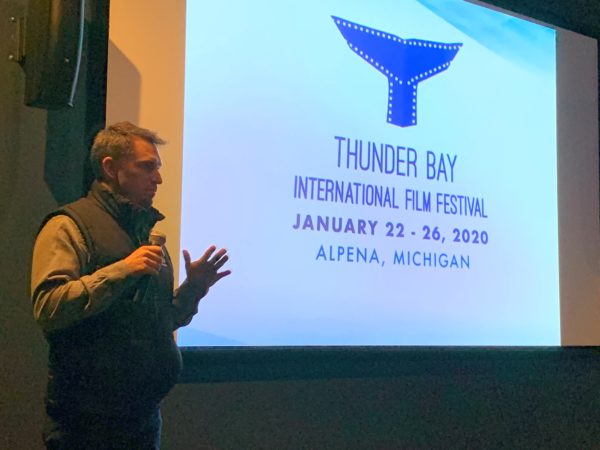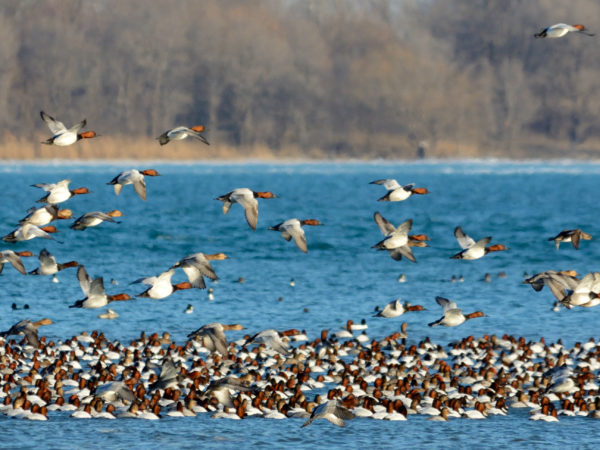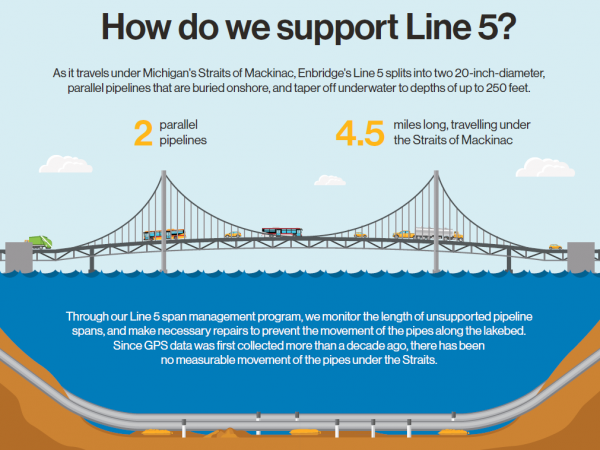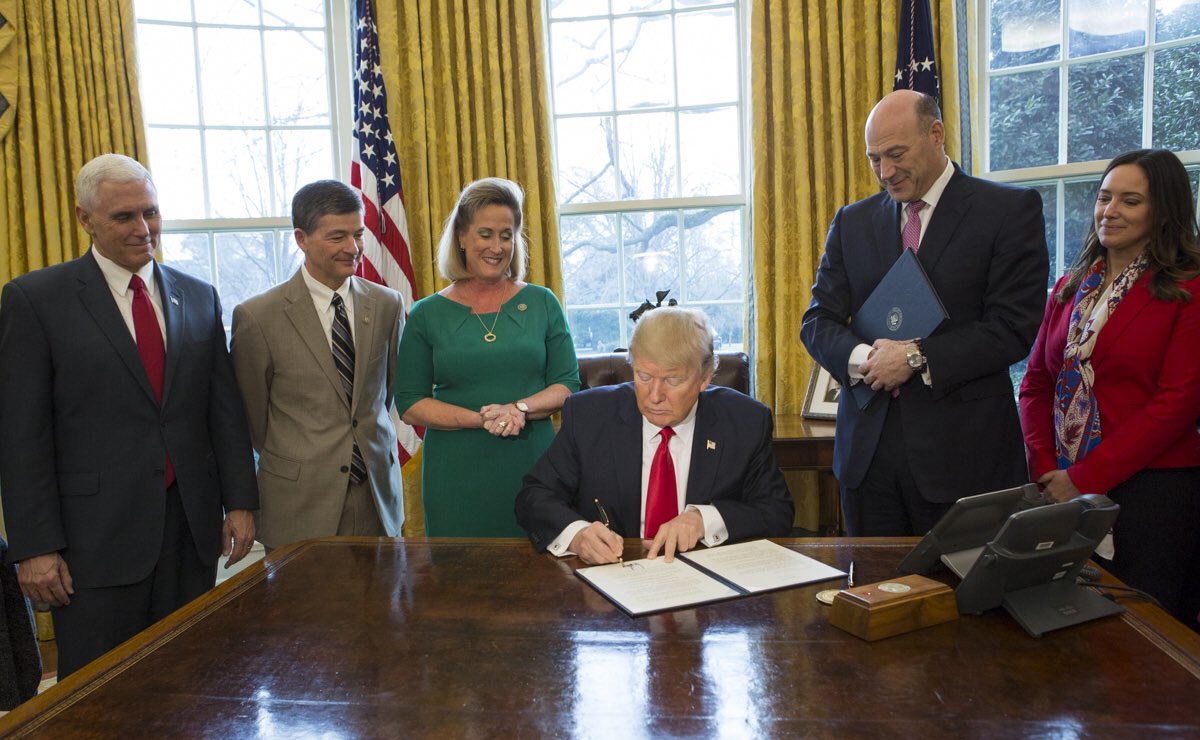
After eight years of a tailwind from the executive branch supporting Great Lakes restoration, advocates have encountered a funding storm coming from the Trump administration.
The president’s first draft budget calls for a 97 per cent reduction in funding for Great Lakes programs.
If approved, federal money designated to restore the lakes would be reduced from $300 million to $10 million.
The reduction is according to a budget document released by Oregonian investigative reporter Rob Davis. Davis attributed the document to the National Association of Clean Air Agencies.
The cuts have been reported by other news agencies including the Washington Post and the Detroit Free Press.
Great Lakes Now contacted the U.S. Environmental Protection Agency’s Great Lakes office in Chicago to confirm the proposed reduction. Media Representative Anne Rowan responded that all budget inquiries had to be directed EPA headquarters in Washington.
Other waterways would be similarly impacted.
San Francisco Bay would receive no funding and Puget Sound’s funding would be reduced by 93 per cent. Funding for environmental justice programs that impact minority communities would be reduced by 78 per cent.
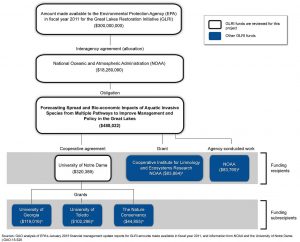
Distribution of Funds for Great Lakes Restoration Initiative Project, courtesy of The U.S. Accountability Office
The Great Lakes Restoration Initiative as it’s called was finalized in President George W. Bush’s second term with funding beginning early in President Barack Obama’s first term. After an initial year funded at $475 million the program settled at $300 million per year.
Support for the program has been bipartisan.
Reaction to the proposed cuts came quick.
Highlighting the work that has been accomplished Michigan Sen. Debbie Stabenow in a press release called the 97 per cent cut “outrageous” and called on President Trump to “reverse course.”
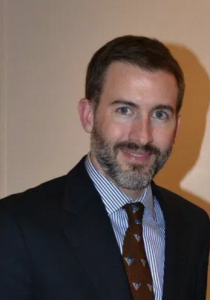
Chad Lord, Policy Director Healing Our Waters Coalition, courtesy of healthylakes.org
The advocacy group Healing Our Waters Coalition’s policy director Chad Lord said the cuts would be “devastating.” The group is the lead not-for-profit that lobbies for federal money for the Great Lakes.
Lord said the coalition would work “to maintain funding at current levels to ensure that Great Lakes restoration remains a national priority.”
The coalition hosted a presidential candidate forum at its annual conference last September where it received statements of continued support for the Great Lakes from the Trump and Clinton campaigns.
On its website, Great Lakes campaign director Todd Ambs said “we’re glad to see both Hillary Clinton and Donald Trump support Great Lakes restoration and protection through the Great Lakes Restoration Initiative.”
Neither candidate addressed specific funding amounts.
The EPA will now have a chance to comment and propose changes to the draft budget before the president sends it to congress. But the Washington Post reported that increases would have to be offset by reductions elsewhere.
There will be efforts by congress to restore funding but with initial cuts so deep, it will be difficult to get back to $300 million. Guidance that came with the draft budget said that to restore cuts campaign and policy statements must be considered.
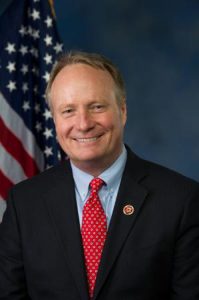
U.S. congressman David Joyce,courtesy of United States Congress
Ohio Republican Rep. David Joyce could be a key player in restoring the budget cuts. Joyce is on the committee that drafts the budget and has been instrumental in maintaining funding for the lakes. Joyce’s office has not responded to a request for comment.
President Trump has long-targeted the EPA for reductions once saying as a candidate that the agency was a “disgrace” and that he would “leave a little bit.”
One area that will be impacted is clean up of legacy polluted sites left from the industrial era that dot the region. The Milwaukee Estuary, Muskegon Lake and the Grand Calumet River in Indiana are examples.
Since 2010 when federal restoration money became available only four of the toxic sites have been cleaned up and 27 remain. It is difficult for states to remediate the sites without federal support.
President Trump won in three states pivotal to his election in the heart of the Great Lakes region that will be impacted by the cuts – Ohio, Michigan and Wisconsin.


